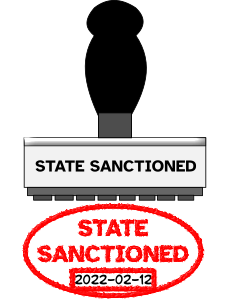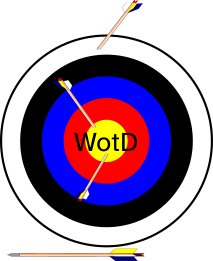sanction
noun
sanc·tion | \ ˈsaŋ(k)-shən \
1 a formal decree especially : an ecclesiastical decree
2a obsolete : a solemn agreement : oath
2b something that makes an oath binding
3 the detriment, loss of reward, or coercive intervention annexed to a violation of a law as a means of enforcing the law
4a a consideration, principle, or influence (as of conscience) that impels to moral action or determines moral judgment
4b a mechanism of social control for enforcing a society's standards
4c explicit or official approval, permission, or ratification : approbation
5 an economic or military coercive measure adopted usually by several nations in concert for forcing a nation violating international law to desist or yield to adjudication
verb
sanctioned; sanctioning\ ˈsaŋ(k)-sh(ə-)niŋ \
1 to make valid or binding usually by a formal procedure (such as ratification)
2 to give effective or authoritative approval or consent to
3a to attach a sanction or penalty to the violation of (a right, obligation, or command)

==========
It seems that the sanctions which get commonly mentioned in the news are the negative ones: noun (5) and verb (3).
["Bad" once meant only something negative, but somewhere along the way it gained a positive vibe. I wonder when that happened with this word. I have not checked the etymology.]
Words are a game. Sometimes I play alone, but I encourage YOU to play, too.














